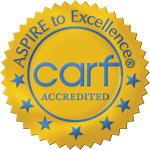
“I didn’t plan for this to be my life.”
Addiction doesn’t recognize boundaries, whether they are the boundaries that separate one addictive drug from another or the differences between one person and another. Anyone can suffer from the disease of addiction regardless of biology or background. Any addictive substance can be the one that destroys a life. Writing in Esquire, Christine Suhan offers a powerful account of her struggle to emerge from the depths of a debilitating meth addiction.
While you might not hear about methamphetamine addiction as often as alcohol, opiate, or heroin addiction, it has the same insidious effect as more commonly abused drugs. Like any other addictive drug, it hijacks the user’s brain, rapidly shifting use to abuse. Suhan pinpoints the cause of so many addictions like her own: “My addictions all started the same way: with that desperate need to change how I felt.”
In her short personal account, Suhan highlights how easily addiction can take hold of a life and empty it of everything but the desire to use a drug. She vividly describes how her comfortable, secure upbringing dissolved into frantic, obsessive searches for minuscule remnants of crystal meth among the fibers of her carpet. Meth addiction can produce symptoms of psychosis for a long period of time even after stopping use of the drug, according to the National Institute on Drug Abuse. That fact is reflected in Suhan’s account of “psychotic breaks from reality” and waking up not knowing where she was or how she got there.
In 2013 there were nearly 600,000 people in the U.S. using meth regularly. While rates of use for other harmful, addictive drugs are higher, methamphetamine abuse has some special considerations. For example, other drugs of addiction have at least a few commonly prescribed medication treatments. Meth addiction has none that are approved by the FDA. Earlier in 2015 a study was published which indicated that a medication currently used to treat alcoholism might also be used for methamphetamine addiction. Research at UCLA showed that Naltrexone might be effective in reducing the high produced by meth and the desire to use.
More clinical studies are needed to confirm the promising results of Naltrexone for meth addiction. In the meantime, people suffering from methamphetamine addiction can look to therapeutic interventions and traditional substance abuse treatment programs. Although Suhan’s story shows the dangerous depths to which meth use leads, her recovery offers hope for those currently struggling to be free from addiction.

